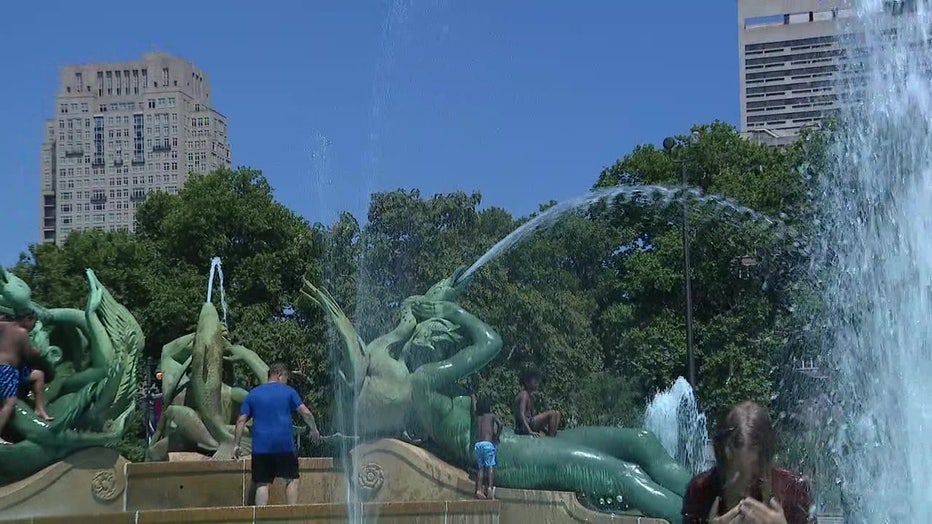Philadelphia heat wave: Climate experts say conditions are hotter earlier and longer

Climate experts say conditions are hotter earlier
Climate experts are saying the heat wave in Philadelphia is the new normal, as conditions are hotter earlier in the year and for longer periods of time.
PHILADELPHIA - The temperatures we’re experiencing may not be unprecedented, but it is earlier and hotter for this time of year, according to climate experts.
"I feel like the summers are getting worse and worse," said Michael Holzwarth.
"I didn’t know it was going to be this hot. Usually, it’s in August, the hot weather," said Michele Krause.
Penn State Chief Sustainability Officer Lara Fowler said, "This is a harbinger of climate change. We are seeing a new normal which is anything but normal. We are seeing hotter temperatures. We are seeing them earlier. We are seeing more frequent heat that exceeds."
Fowler shared the warming stripes for Philadelphia over the years, with red stripes indicating years that were hotter than average. The deep red stripes seen in recent decades show the rapid heating of our planet.

"We are at the hottest we have seen in 12,000 years, kind of going up and up and up and up where we are actually seeing changes," said Fowler. "It has been predicted actually since the 1860s that carbon dioxide layer, if built up, would retain heat. We are seeing it. Predictions that were made for mid-century 2050, 2060 are coming true now with an acceleration in a number of tipping points. Warmer atmosphere means more moisture, more ability to contain water, and so we’re seeing heavier snowstorms, we’re seeing heavier rainfall, we’re seeing more prolonged drought and more flooding."

Fowler said this is a human-caused impact, and there are opportunities to address the impact. She said there are efforts locally and globally to identify greenhouse gas emissions and to carry out climate action plans.
The National Weather Service reports heat is the leading cause of weather-related deaths.

Signs of heat exhaustion, heat stroke
Be prepared for the extreme heat while you are outdoors by watching out for signs of heat exhaustion and heat stroke.
"Here in the United States in a city like Philadelphia, you have inequities in who has air conditioning, who is in older homes and does not have ability to cool, who is working outside," said Fowler. "Please check on somebody who is vulnerable. Maybe you have an elderly neighbor you haven’t seen for a while. The most vulnerable groups are those with least income, but also those who are isolated or alone."
Fowler said there are requests into FEMA to pay attention to heat as a natural disaster with major consequences.

